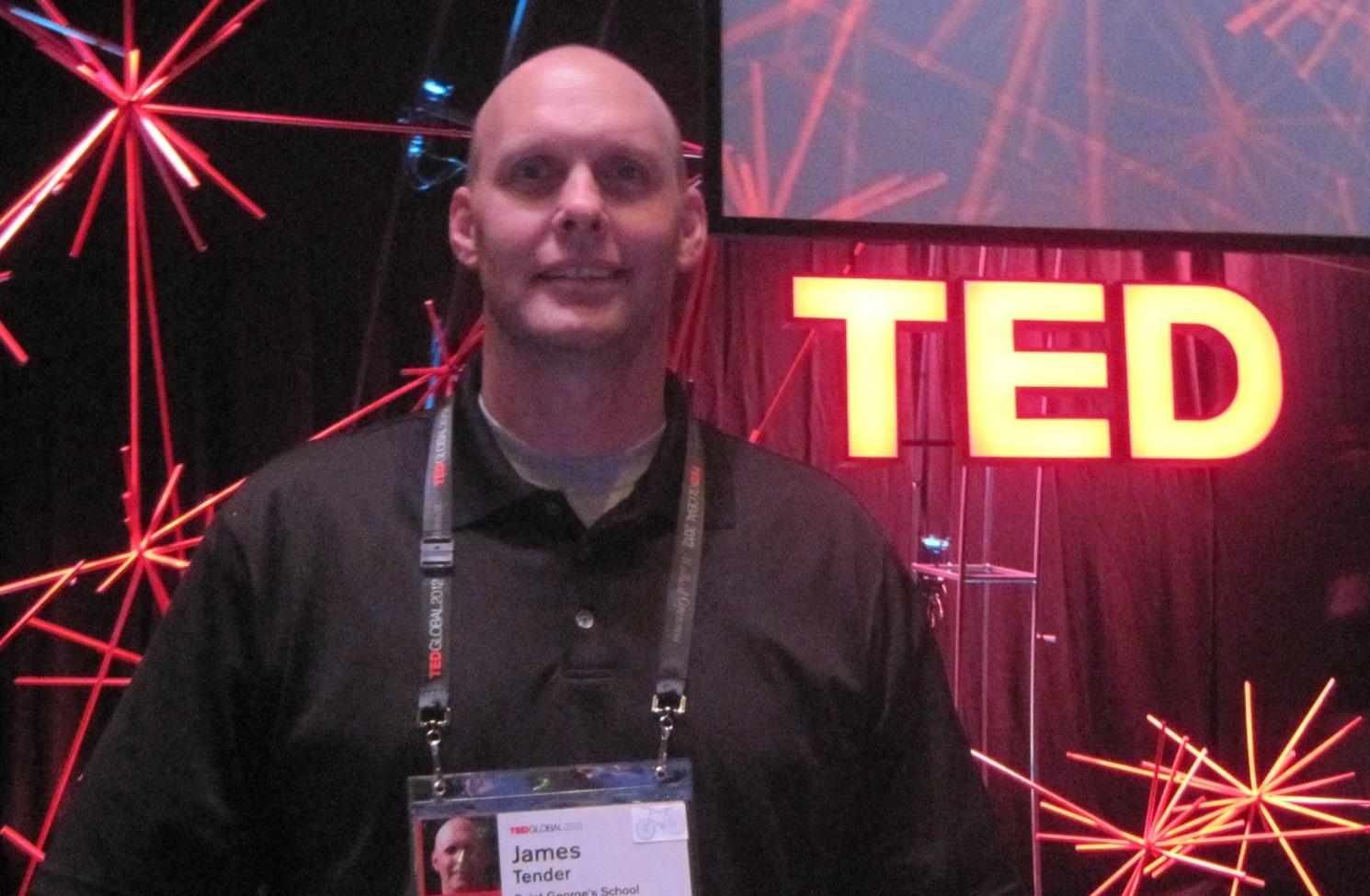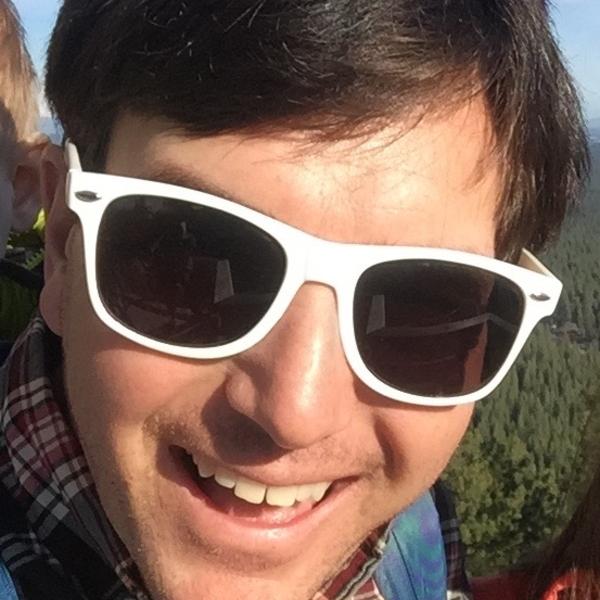Aaron Hesse
Electricfal Engineer
Aaron Hesse in an electrical engineer and building technology specialist. Over the course of his career, he has designed and constructed electrical and network infrastracure both internationally and throughout the Northwest. As a frequent contributor to technical publications and construction standards, he is familiar with the current trends in building construction. His passion is making buildings more connected and efficient and will be speaking to us on the future of building technology and its role in disrupting the utility industry."
Nutritional Therapy Practitioner
Ammi Midstokke is a Nutritional Therapy Practitioner and regular contributor to several publications. During office hours, she tries to save the world with vegetables in her medical clinic, specializing in autoimmune disease and gastrointestinal disorders. Though as a child she had the more standard ambition of ‘ballerina,’ she was thwarted by an impressive lack of grace, a developing fascination with the microbiome, and an insatiable hunger for (mis)adventure. She lives in her off-grid cabin in North Idaho where she spends most of her time fantasizing about creative ways to kill animals that threaten her garden, optimizing solar panel positioning, and getting lost in the mountains with her brown dog. She will be presenting on the benefits of developing personal connection to the systems that support us, from controlling our own supply chain to accidental conservationism.
Chris Wood
Agriculturist Engineer
Christopher Wood’s broad industrial, technology, economic and agriculture experiences gives him insight to the technology and infrastructure changes coming to wheat farming in the pacific northwest. He believes farmers will be willing to rapidly adopt high tech solutions in machinery, soil science, seed breeding and chemical conservation because of the low cost solutions these offer for the survival of the farm.
Educator + Researcher
Dave Paunesku studies the motivation to learn — and how learning contexts can stifle or energize that motivation. His center at Stanford University, PERTS, helps educators leverage behavioral sciences research to cultivate students’ passion and persistence for learning. He asks: what must our schools do differently to prepare students for a rapidly changing world in which knowledge and skills quickly obsolesce?
Erika Prins Simonds
Non-Profit Coordinator + Peace Ambassador
Erika Prins Simonds has written hundreds of journalism articles, carving a niche for herself as a storyteller. That’s in her spare time. During the day, she is program coordinator for the creative non-profit Spark Central. She lives in downtown Spokane with her husband and two cats. A multipotentialite, she’s done stints in politics and marketing, managed a vegan restaurant and launched a mini side career as a graphic artist, teaching herself new skills along the way. Erika was born in Pretoria, South Africa and raised in central California before hauling all her flip-flops up to Spokane for college. She earned a degree in International Studies and Spanish at Whitworth University. Erika’s TEDx talk explores the part language plays in how we understand each other: We can use fierce, fearless conversation to build a healthier political culture that’s resistant to fear-based messaging.
Francis Adewale
Attorney + Author
Francis Adewale was admitted to the Washington State Bar in June 2000. He is H. George Frederickson Honors Graduate of Eastern Washington University. Francis was born in Nigeria and was sworn in as an American citizen in 2005. He has served as Assistant Public Defender for the City of Spokane, since May 2001. He is one of the attorneys that helped establish Spokane Community Court. Francis is 2013 recipient of City of Spokane Human Rights Award, and 2014 Spokane County Bar Association Smithmoore P. Myers Professionalism Award and 2017 recipient of the WACDL President’s Award. His talk will expound on a unique program that seeks to address this problem by moving people out of jail into housing, treatment, social services, reduce ER usage, while participants give back to the community through community service.
Physician + Educator
John Tomkowiak, MD, MOL, is the founding dean of the Washington State University Elson S. Floyd College of Medicine. A professor of psychiatry and board certified in general psychiatry, as well as a master degree holder in organizational leadership, Dr. Tomkowiak has expertise in the areas of innovation in medical education, accreditation, and transformational leadership. With leadership experience at medical schools in Florida, New York, and Illinois, Dr. Tomkowiak brings deep expertise and passion to training doctors to be leaders in their communities, in personalizing medical students’ education so it is relevant to their careers, and developing physicians who are prepared to practice innovative healthcare.
Attorney/ Author
Judy Cornish is an elder law attorney, author, and the founder of the Dementia & Alzheimer’s Wellbeing Network (DAWN). I spend most of my time running DAWN and my dementia care business, Palouse Dementia Care, and teaching families and dementia caregivers how to use the tools of the DAWN Method. I am passionate about recognizing the skills we can still use even with dementia, and teaching people how we can support the dignity and autonomy of those who are living with dementia. My talk will be about three simple skills retained in dementia and how we can live fulfilled lives through recognizing the pattern.
Recyler + Waste Manager
Kristin Kinder, living in eco-conscious Germany, inspired to work for change at home. She has dumpster-dived all over the country and helped Fortune 500 businesses see the waste they generate in a new light. As Ecova’s Product Manager for Waste, her background in recycling education and behavioral change has prepared her to develop waste programs that improve clients’ cost savings, efficiency, and recycling rates. When she’s not saving the planet, you will likely find her talking to strangers in another country, perusing a farmers market, hustling on a soccer field, or arguing about the Oxford comma. By the end of her TEDx Talk, she will have convinced you to rethink how you use resources daily.
Matthew Mitchell
Organizational Strategist
Matthew Mitchell has researched the future for nearly 20 years helping organizations, governments, institutions, and individuals invent better futures through policy, investment, and planning. He is currently developing an online service to expand access to strategic visioning research. Within the past 10 years a growing body of scientific research has revealed that a significant portion of the population has a conceptual “future gap” in which the brain is unable to fully connect our current selves with our future selves, this can greatly affect how we make decisions. As a form of extreme future gap, some of us perceive our future selves as someone else entirely.
Racing Drone Pilot
Monty Lomazzi aka “Mustang Freak” — Racing Drone Pilot and the Chapter Organizer for SpokaneFPV, a regional Tier 2 MultiGP drone racing chapter. Myself and others like me are using fields, parks, even their backyards across the globe to redefine what it is to pilot remote vehicles of all types. With us pushing the limits daily, the systems we are using are being forced to become lighter, faster, and smarter at an extreme rate. This is creating a future where that delivery you just ordered gets to you in half the time, calling for help and knowing it’s literally only a minute away, and sending your kids off to school in an autonomous bus that has a better driving record than you… That future we heard about is now.
Natasha Miserendino
Author + Chef + Photographer
Natasha Miserendino is passionate about food, teaching, and the community. Originally from Chandler, Arizona, she moved here to Spokane from San Diego, CA. After working in restaurant management for almost 10 years, life has taken a different path and Natasha is now working at Umpqua Bank as a Lending Production Specialist. In the meantime, she is currently author, photographer, and chef behind her vegan food blog and is in the process of writing a cookbook geared towards those wanting to make healthy meals, but don’t have the knowledge or fancy equipment to do so. Someday, Natasha hopes to be able to teach young adults culinary skills and the benefits of a fresh, wholesome diet. Her talk will be about the power behind words and the impact they have on others.
Innovator + Entrepreneur + Futurist
Nick Smoot has founded and sold three tech companies. Now as the founder of Innovation Collective and Mountain Man Ventures (VC fund), he is focused on redefining how people and cities participate in the future of work. He is a Milken Institute Young Leader and a member of the Young Entrepreneur Council. Nick has been interviewed for or contributed to Bloomberg, Forbes, USA Today, Fast Company, Mashable, Virgin, LinkedIn, Inc. Magazine and Huffington Post. He has also been kissed by Richard Branson.
Transportation Engineer
Rhonda Young is a professor of civil engineering at Gonzaga University specializing in transportation systems. She studies the role of transportation on safety, mobility, and efficiency of communities and regions and is excited about creating more livable and economically healthy communities. Rhonda’s talk looks at future transportation technology and it’s likely impacts on our society while asking the audience to consider their own mobility.
Tabitha Wolf
Applications Analyst/ Advocate/ Volunteer
Tabitha Wolf: “I’m passionate about transgender issues. By day, I’m an Applications Analyst for MultiCare Health System, but in my free time I help run Spokane Trans People, the premier transgender support group/social club in the inland northwest. My talk will address the future of gender, and how the seemingly static concepts of male and female might evolve in the coming decades.“
Environmental Performer
Tucker Frye was born in Bend, Oregon. Moved to Spokane very shortly after birth. I had a pretty usual upbringing, I feel like because there was not much conflict in my childhood that it would have been easier for me to get involved in trouble if I hadn’t taken on dance. Dancing had really pushed me to improving myself and figuring out ways I can challenge myself from day to day. Out of high school I lost a lot of my friends who weren’t in to some physical activity or dance, so I was a little more of a loner in my early adult years. I had met Dmitry Bistrevsky and David Moyle both through dance and our group just grew from there. Suddenly, there were about ten of us and we would travel and eat and do everything together. It was then when I started realizing that you can really create a community with something as little as a common interest.

